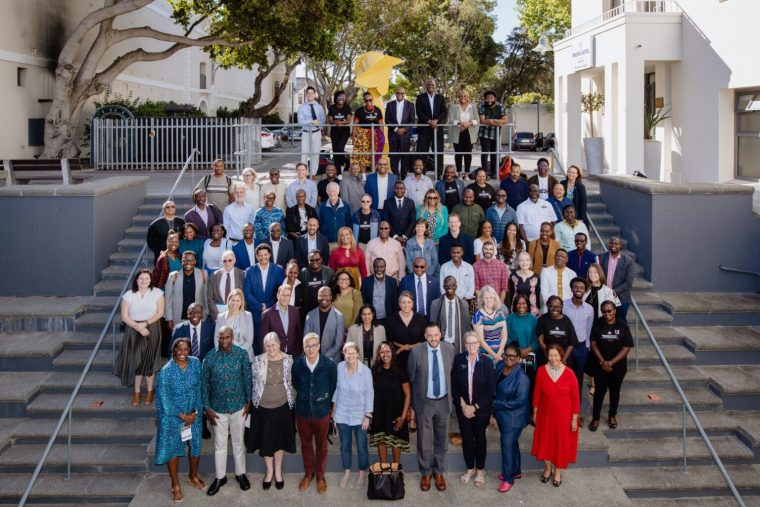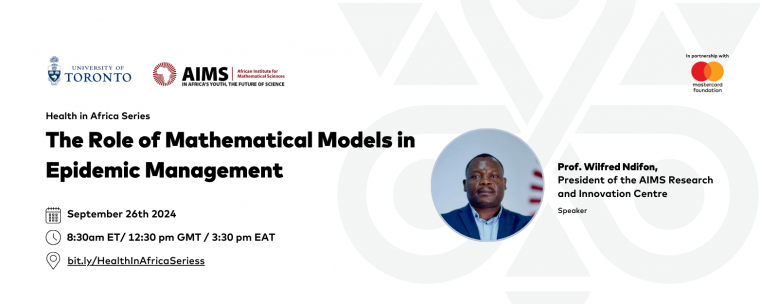Join renowned theoretical biologist Wilfred Ndifon as he explains how advanced mathematical modeling has transformed epidemic management. Using real-world examples from AIMS’s work on mpox and COVID-19 surveillance, he will show how these models enhance epidemic preparedness, reduce costs, and improve control strategies.
What you’ll learn:
- The importance of robust surveillance in managing epidemics.
- The distinction between implicit and explicit models, and the unique value of mathematical models.
- Case studies, including how Rwanda saved over $20M in COVID-19 surveillance costs.
- The role of mathematical models in monitoring and controlling the spread of mpox.
About the Speaker (Prof. Wilfred Ndifon):

Wilfred Ndifon is a theoretical biologist who conducts research at the interface of the mathematical and biological sciences, with a primary interest in elucidating the mechanisms that govern immune responses to diseases. Also of interest is the investigation of clinical applications of the basic scientific work, including designing improved diagnostics and vaccines.
His scientific contributions include i) a pooled testing strategy for identifying SARS-CoV-2 at low prevalence (Ndifon et al, 2020). https://doi.org/10.1038/s41586-020-2885-5; ii) a mathematical instantiation of the output of a popular serological assay (Influenza Other Resp Viruses 5:206, 2011), an important theoretical prediction of which was experimentally validated (Lee et al. J Virol 87:9904, 2013); iii) discovery of steric antibody interference in influenza viruses (Proc Natl Acad Sci USA 106:8701), inspiring a new proposal to improve the efficacy of subunit influenza vaccines; iv) discovery of a physical rule that governs gene segment recombination at the genomic loci encoding T cell receptor beta chains (Proc Natl Acad Sci USA 109:15865, 2012); and v) a unifying mechanistic explanation of the intriguing immunological phenomenon of the original antigenic sin (J Roy Soc Interf 12:20150627, 2015).
He is the President of the AIMS Research and Innovation Centre and the chief scientific officer of the African Institute for Mathematical Sciences (AIMS)—Global Network. He holds a PhD degree from Princeton.
More News & Events
Skip scroller contentDignity, Data, and Disruption in Africa’s Health Systems: A Young Leader’s Reflection
John Nyagaka, a Mastercard Foundation Scholar and AHC Young Leaders Table Chair, reflects on his transformative experience at the 2025 Annual Convening.
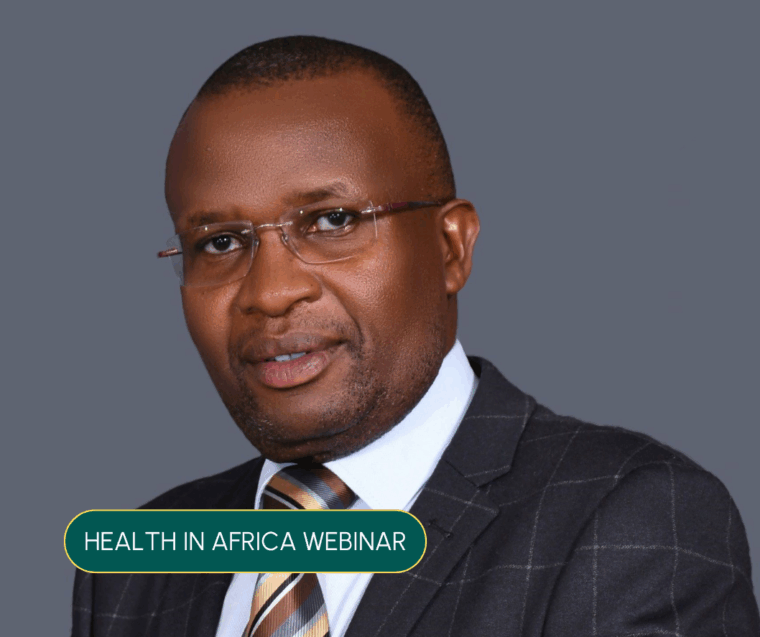
What Works: Improving Maternal and Newborn Health in Kenya and Ethiopia
Join this webinar to explore how community-led systems and digital innovations, in partnership with local leaders, are scaling sustainable healthcare impact and delivering life-saving care for mothers and their newborns.
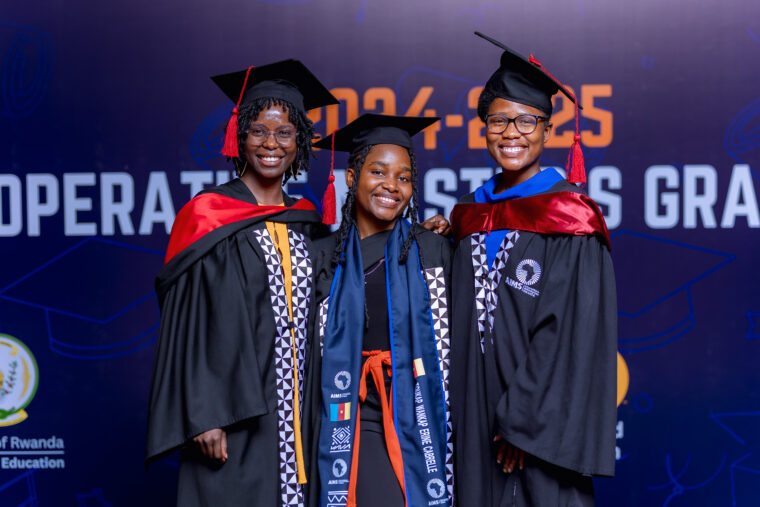
Apply for the AIMS Master’s in Mathematical Epidemiology (MathEpi) Scholarship
Apply for the 2025 AIMS MathEpi Master’s program. Fully funded scholarships for African students in statistics and public health. Deadline: March 15.

Apply for KNUST’s CPD-Eligible Short Courses in Health Systems and Services Management
Applicants must meet the following requirements to qualify for the scholarship: Short Courses and Timelines 23rd – 27th February 2026: Emergency Preparedness and Response to Epidemic/Pandemic-Prone Diseases 10th – 14th February 2026: Community Emergency Care 24th – 27th February 2026: Palliative Care Module 1 23rd – 27th March 2026: Introduction to Healthcare Quality Improvement (IQI) […]
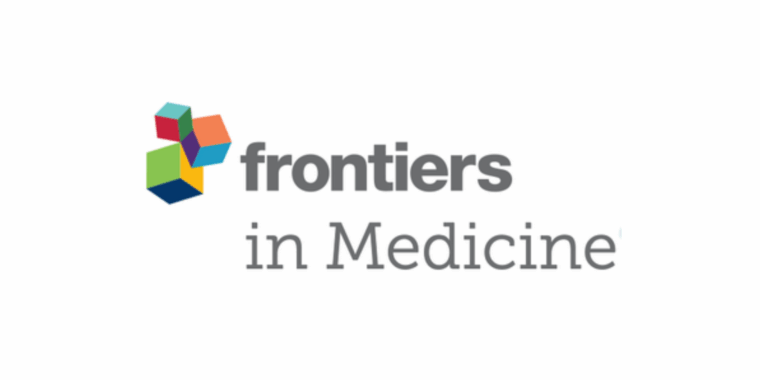
Call for Insights & Stories: Frontiers Opens Special Collection for AHC Partners
The Africa Health Collaborative (AHC) is pleased to share an exciting opportunity for all AHC institutional partners to share original research, reviews, case studies, policy briefs, perspectives, and reflective pieces in a new article collection titled “United in Partnership: Academic Collaborations for Primary Health Care Transformation” by Frontiers in Medicine. This special collection is being […]

A New Chapter of Collaboration: AHC Welcomes Prof. Joachim Osur as Executive Steering Committee Chair
The Africa Health Collaborative (AHC) has announced Prof. Joachim Osur, Vice Chancellor of Amref International University, as the new Chair of the Executive Steering Committee (ESC). The symbolic handover took place during the closing ceremony of the 2025 AHC Convening in Rwanda, held in October 2025. This marks a significant leadership transition from Prof. Nhlanhla […]
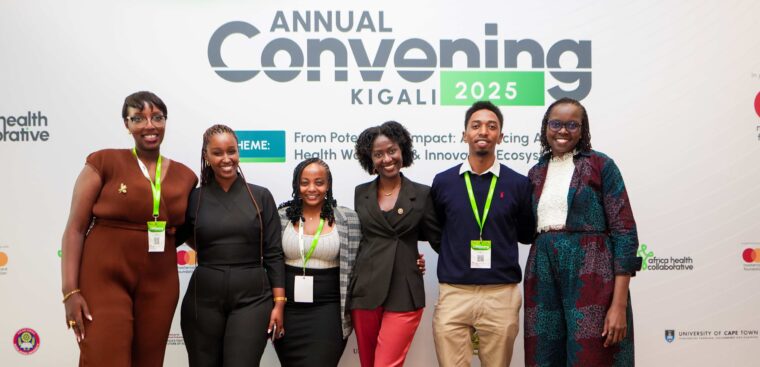
Africa Health Collaborative 2025: Driving Transformative Change in Primary Healthcare Future
Last October, over 170 policymakers, health experts, academics, and youth innovators from 14 countries came together for the Africa Health Collaborative’s (AHC) 2025 Annual Convening, hosted by the African Leadership University (ALU) in Kigali, Rwanda.

Engineering Dignity: Designing Low-Cost Prosthetics in the University of Cape Town’s MedTech Lab
Read about how Jemila Abdulai’s internship at UCT’s MedTech Lab strengthened her commitment to human-centered engineering, demonstrating how affordable innovations like the ADL Arm can expand access, restore dignity, and transform lives in underserved communities.

Graduate Scholarship Opportunities at the Kwame Nkrumah University of Science and Technology
Apply for graduate (MPh, MSc, MPhil, PhD) scholarships at the Kwame Nkrumah University of Science and Technology.
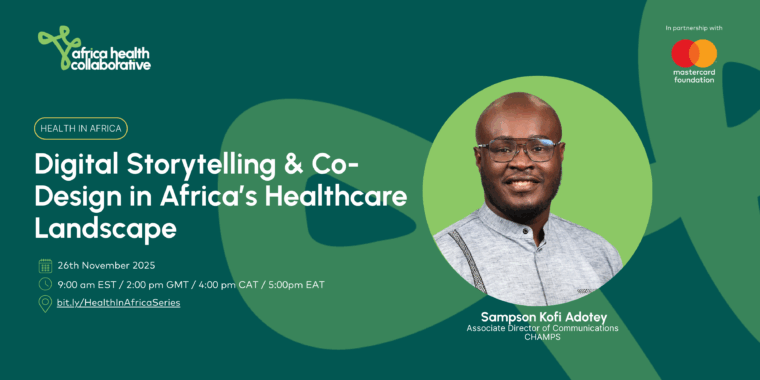
Digital Storytelling & Co-Design in Africa’s Healthcare Landscape
Join this webinar to explore how Digital Storytelling (DST) and Co-Design can transform health systems by centering the people who live the stories.
